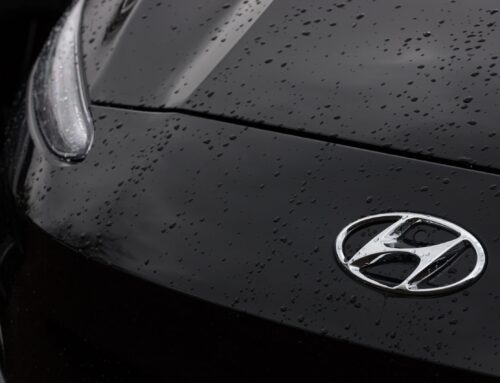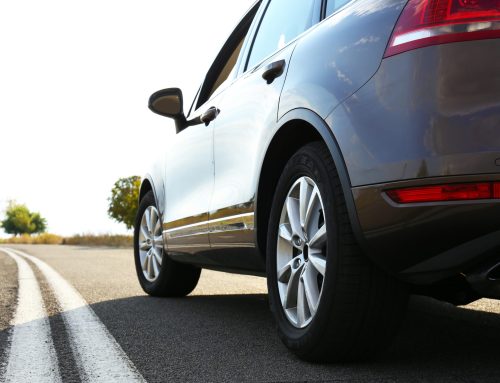The Complete Volkswagen Buyer’s Guide: 7 Critical Insights for Smart Purchases
Volkswagen represents a unique position in the automotive landscapeΓÇöa brand that bridges the gap between mainstream accessibility and European luxury engineering. With a rich heritage spanning decades and a lineup that includes everything from the practical Jetta to the iconic Golf and the electric ID.4, VW offers compelling options for discerning buyers who want more than basic transportation.
However, navigating the Volkswagen market requires understanding both the brand’s strengths and potential challenges. From maintenance considerations to resale value trends, there are specific factors that can make the difference between a satisfying ownership experience and costly regrets. Here are seven critical insights every potential Volkswagen buyer should understand before making their purchase decision.
1. Understanding Volkswagen’s Premium Positioning and Value Proposition
Volkswagen occupies a distinctive market position as a “premium mainstream” brand, offering European engineering and design at prices typically below traditional luxury marques. This positioning means VW vehicles often include features and build quality that exceed what you’d find in comparably priced domestic or other import brands.
The brand’s commitment to refined engineering shows in details like solid door closing sounds, precise switchgear operation, and suspension tuning that prioritizes ride quality over harsh sportiness. However, this European approach also means higher parts and service costs compared to mainstream brands, making understanding the true cost of luxury vehicle ownership particularly relevant even for entry-level VW models.
When evaluating Volkswagen options, consider the total ownership experience rather than just the purchase price. The refined driving dynamics and premium feel often justify the additional investment, but only if you appreciate these European characteristics and budget appropriately for maintenance.
2. The Importance of Vehicle History and Carfax Reports for VW Purchases
Volkswagen’s sophisticated engineering and electronic systems make vehicle history verification particularly crucial. Unlike simpler vehicles where problems are often immediately apparent, VW issues can be subtle and expensive to diagnose without proper documentation of maintenance and repairs.
Understanding what you need to know about Carfax reports becomes especially important with Volkswagen purchases because the brand’s vehicles often have complex electronic systems that can develop issues if not properly maintained. A clean maintenance history showing regular dealer service can indicate whether previous owners understood the importance of following VW’s specific service requirements.
Pay particular attention to recall completion, warranty work history, and evidence of regular maintenance using genuine VW parts. The sophisticated nature of modern Volkswagen systems means that deferred maintenance or improper repairs can cascade into expensive problems that aren’t immediately obvious during a test drive.
3. Safety Considerations and Crash Protection Standards
Volkswagen has long prioritized safety engineering, often incorporating advanced crash protection features before they become industry standard. This commitment to safety represents genuine value, especially considering that crash safety technology continues advancing rapidly across the automotive industry.
Many Volkswagen models consistently earn top safety ratings from both IIHS and NHTSA, reflecting the brand’s investment in structural engineering and active safety systems. Features like VW’s comprehensive driver assistance suite often come standard on models where competitors charge extra for similar technology.
When comparing Volkswagen options, research the specific safety ratings for your target model year, as VW frequently updates safety technology across their lineup. The brand’s commitment to safety engineering often means that even entry-level models include crashworthiness features typically found only in luxury vehicles.
4. Navigating the SUV vs. Crossover Decision in VW’s Lineup
Volkswagen’s SUV lineup includes both traditional SUV characteristics and modern crossover design, making understanding the difference between SUVs and crossovers particularly relevant when choosing between models like the Atlas, Tiguan, and ID.4.
The Atlas represents VW’s approach to the traditional three-row SUV market, offering substantial towing capacity and interior space while maintaining European driving dynamics. The Tiguan focuses on compact efficiency with available all-wheel drive, while the electric ID.4 demonstrates VW’s crossover philosophy applied to electric propulsion.
Consider your actual usage needs rather than perceived requirements. Volkswagen’s crossover models often provide better fuel economy and handling while still offering practical cargo space and available all-wheel drive for most families’ needs. The brand’s engineering excellence means that even their crossover models feel substantial and capable.
5. The Hidden Value in Volkswagen’s Former Luxury Experiments
Volkswagen’s automotive history includes fascinating examples of luxury experimentation that can represent exceptional value in the used market. The VW Phaeton stands out as a prime example of how Volkswagen’s luxury ambitions can create used car bargains for savvy buyers.
Originally priced at $75,000 and built in the same facility as Bentley models, the Phaeton featured Audi’s refined powertrains and luxury appointments that rivaled much more expensive vehicles. Today, well-maintained Phaetons can be found for a fraction of their original cost, offering genuine luxury features at mainstream prices.
However, these luxury experiments come with important caveats. Parts availability, service expertise, and maintenance costs reflect their original luxury positioning. Before considering models like the Phaeton, research local service capabilities and parts costs to ensure you can properly maintain these sophisticated vehicles.
6. Electric Vehicle Strategy and Future-Proofing Your VW Purchase
Volkswagen’s aggressive electric vehicle strategy, centered around their ID. series, represents one of the most comprehensive EV transitions in the automotive industry. This commitment to electrification has implications for both new and used VW purchases, particularly regarding resale values and long-term viability.
The ID.4, manufactured in Tennessee, demonstrates VW’s serious approach to electric mobility with competitive range, charging capabilities, and the refined driving experience characteristic of the brand. However, this EV push also means that traditional gasoline models may face different resale trajectories compared to brands with less aggressive electrification timelines.
Consider your ownership timeline and comfort with automotive technology when evaluating VW options. Early adoption of VW’s electric technology could provide advantages, while traditional models may offer better value for buyers planning shorter ownership periods or preferring proven powertrains.
7. Professional Service Networks and Maintenance Considerations
Volkswagen’s European engineering philosophy extends to service requirements, making choosing between dealership and private sale purchases particularly important for long-term satisfaction. The brand’s sophisticated systems often require diagnostic equipment and expertise that independent shops may not possess.
Dealership purchases provide access to factory-trained technicians familiar with VW’s specific systems, recalls, and service bulletins. This expertise becomes crucial when dealing with issues like DSG transmission maintenance, complex electronic systems, or software updates that can affect vehicle performance and reliability.
Effective negotiation strategies for Volkswagen purchases should account for the brand’s specific value proposition and service requirements. Understanding VW’s maintenance needs and factoring them into your total cost calculations provides a more accurate picture of ownership expenses than purchase price alone.
Making Your Volkswagen Decision
Volkswagen ownership offers a distinctive experience that combines European engineering refinement with broader accessibility than traditional luxury brands. The key to successful VW ownership lies in understanding and embracing the brand’s philosophy while making informed decisions about model selection, service requirements, and long-term value.
Whether you’re attracted to the practicality of a Jetta, the versatility of a Tiguan, or the innovation of an ID.4, the most important factor is matching VW’s strengths with your priorities and usage patterns. Take time to research specific models, understand maintenance requirements, and budget appropriately for the premium ownership experience that comes with European engineering.
The modern Volkswagen lineup offers compelling alternatives to both mainstream and luxury competition, often providing better build quality than mass market brands while maintaining more accessible pricing than traditional luxury marques. By understanding these seven critical insights, you’re positioned to find the Volkswagen that best serves your needs while maximizing your investment in German engineering excellence.




